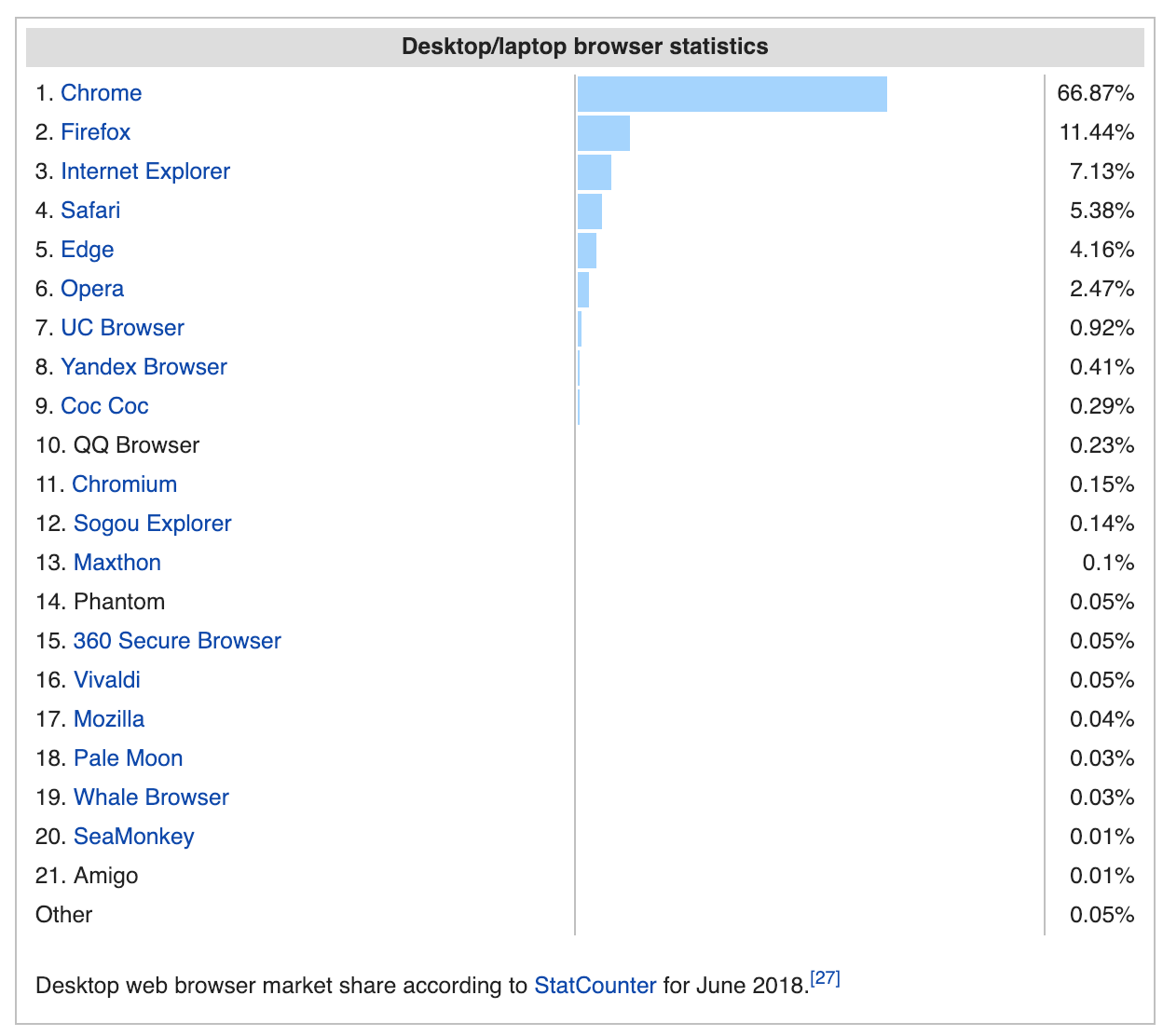
Browser market share June 2018
In June 2018 the top 5 browsers had an estimated 94.98% share of the browser market. This makes sense since most people either use their OS’s default browser or find a mainstream alternative, such as Chrome or Firefox. Yet there’s a lot of interesting and novel browser work happening on the fringes. Brave, started by Brendan Eich (creator of JavaScript and cofounder of the Mozilla project), is designed for privacy and comes with built-in adblocking; Vivaldi is all about customization and tab management; UC Browser is all about mobile performance - and is, in fact, the third most popular mobile browser.
The fact that there’s this much browser diversity is great. These alternative browsers are able to experiment with their approach and appeal to a passionate enough user base that keeps them going. And if these features do work, the mainstream browsers end up adopting them in future versions.
Nearly all, if not all, browsers are free. This is all happening due to the wonders of the modern web. The mainstream browsers have huge corporations supporting their development. The others support themselves through advertising by selling the search bar to search engines. I don’t know the how much revenue the average user makes or how many users it would take for a browser to stay alive but the more we experiment with these alternative browsers and try them out the healthier the browser ecosystem.
